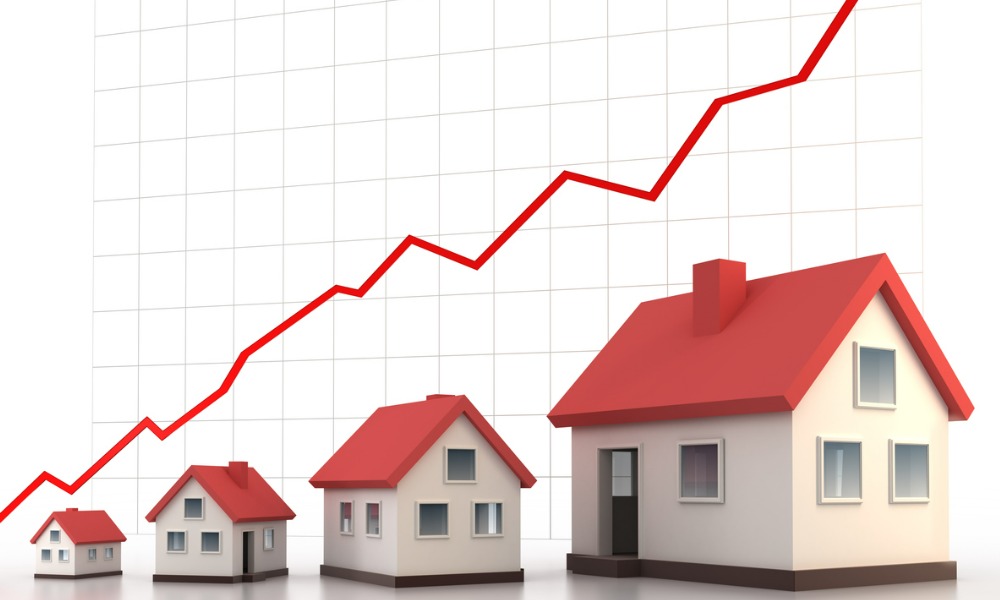The 30-year fixed mortgage rate hit a new peak on back of aggressive Fed rate increase

Shortly after the Federal Reserve announced another three-quarter point hike, the 30-year fixed mortgage rate hit a new record high on Wednesday, data from the Mortgage Bankers Association showed.
The average contract rate on the benchmark mortgage product surged to 6.25%, exceeding the peak in October 2008. According to MBA, the rate spiked nearly 25 basis points – the most since mid-June. The rate on a five-year adjustable mortgage posted a 31-basis point increase to 5.14%.
“In response to inflation continuing to run well above its target of 2%, the Federal Reserve again raised the federal funds target by 75 basis points today,” said MBA chief economist Mike Fratantoni. “At 3%, the rate is now above what most FOMC members consider to be the long-term level and should be effective in reducing demand and slowing inflation over time.”
Read more: US inflation tops forecasts
Marty Green, principal with mortgage law firm Polunsky Beitel Green, believes the Fed’s aggressive rate increases are, in no doubt, cooling the real estate market.
“The rapid rise in rates is definitely slowing the pace of sales and throwing cold water on what was a frenzied residential real estate market only a few months ago,” said Green. “Where inventory was the big concern in 2021 and early 2022, the concern today is affordability, with the combination of substantial price increases and rising rates simply pricing more and more Americans out of the market.”
Keller Williams chief economist Ruben Gonzalez expects mortgage rates to climb even further if the central bank continues to ratchet up the federal funds rate to slow inflation
“Housing costs are heavily weighted in both Consumer Price Index (CPI) and Personal Consumption Expenditures Price Index (PCEPI) inflation calculations in the form of owner equivalent rents,” Gonzales said. “In the August CPI report, owner equivalent rents contributed 1.5% of the total 8.3% in prices over the previous 12 months. Housing made the second largest contribution to the 12-month increases in the index behind energy. As energy prices fall, housing will remain a key contributor to inflation.
“Rising mortgage rates have continued to slow housing market demand, resulting in slowing sales and slower home price appreciation. We expect existing home sales to finish the year down nearly 20%, and for the slower pace of home sales to persist into the beginning of 2023.”



